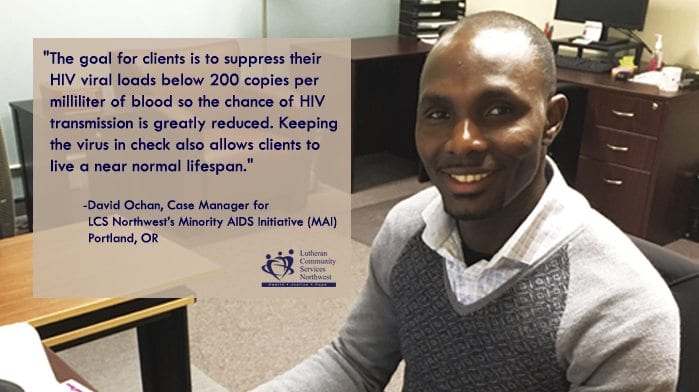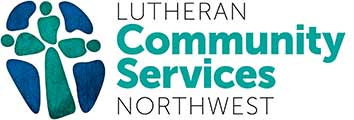5 Questions: David Ochan, Case Manager for LCS Northwest’s Minority AIDS Initiative (MAI)


David has been a Case Manager with the MAI program since 2013. MAI is a collaboration with Oregon Health and Science University (OHSU). Our partnership helps provide intensive, culturally-specific and appropriate services to refugees and immigrants living with HIV.
Q1: Have you always worked with the HIV community?
I grew up in Uganda and lived there all my life before relocating to the United States six years ago. Back in Uganda, I was actively involved with advocating for the HIV community. Resources in Uganda are extremely limited, and mortality rates are high. My role back then was to educate people on the importance of good nutrition. It’s a different culture where we saw being overweight as a sign of prosperity and being skinny as a sign of sickness. It was an uphill battle.
Q2: What does an average workday look like?
With existing clients, the day begins with what needs the most attention. For most, applying for health insurance is the main one. With health insurance, I am able to help clients get needed medical attention. We are fortunate to have Roman Savochka, Oregon Health Authority Assister in the Portland office who helps my clients apply for health insurance. Once that is settled, I help make and attend medical appointments. I’m also their interpreter, as 90 percent of my clients speak the same African dialect as I do. I also assist clients with housing, English as a Second Language (ESL) classes, food assistance and job placement.
Q3: What is the goal of this program?
The goal for clients is to suppress their HIV viral loads below 200 copies per milliliter of blood so the chance of HIV transmission is greatly reduced. Keeping the virus in check also allows clients to live a near normal lifespan. This is achieved by taking HIV medication every day exactly as prescribed. Once my clients achieve independence and learn to navigate the system, I consider my job done. This can take from one to 10 years or longer. When a client relapses, we have to start from the beginning.
Q4: What professional challenges do you face?
I don’t have enough time to meet all my clients’ needs. I have to prioritize which clients’ needs take precedence, and some days, planned and scheduled appointments are interrupted by another client’s crisis. I also face challenges educating clients on how to navigate the system and the importance of staying on top of their medical appointments and medications. Even though we speak the same language, it can be challenging because we have different cultures, beliefs and education levels.
Q5: Can you share a success story?
One of my client is now a Registered Nurse. I worked with him for three years. In that time, he learned the system, didn’t miss appointments, attended ESL classes, got a job and put himself through school. I am very proud of him. His story is one of the many reasons why I love my job. I hope we can partner with more agencies so clients have more and better access to resources. That would help them be who they want to be.

0 Comments